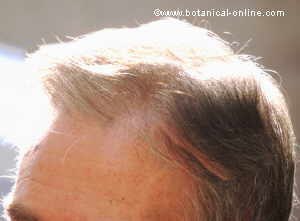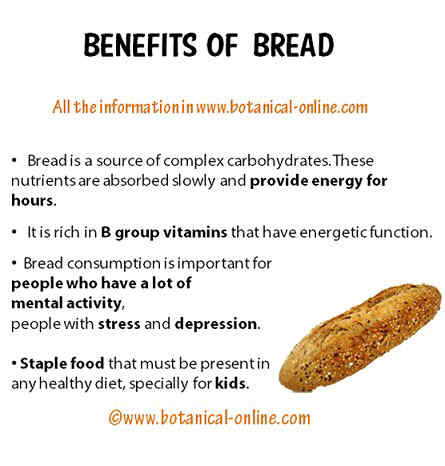Contents
- 1 Benefits of chlorine in the human body. What is chlorine for?
- 1.1 Chlorine to favor digestion
- 1.2 Chlorine to avoid liquid retention
- 1.3 Chlorine for the bones, joints and muscles
- 1.4 Chlorine to protect your teeth from caries
- 1.5 Chlorine protects your hair health
- 1.6 Symptoms of chlorine deficiency
- 1.7 Daily chlorine needs
- 1.8 Special chlorine needs
- 1.9 Toxicity and contraindications of chlorine. Excess of chlorine
Benefits of chlorine in the human body. What is chlorine for?
Chlorine to favor digestion
We find chlorine in the blood as Cl- and in the form of hydrochloric acid in the stomach. This performs the function of decomposing and digesting the food we eat to smaller substances that we can continue digesting in the intestines and can be absorbed later in the digestion process.
In case of heavy digestion due to lack of hydrochloric acid, chlorine supplements are usually supplied to increase the production of this acid. Chlorine stimulates the production of gastric juices so, in addition to facilitating digestion, it increases the flow of juices from the liver, which produces the cleaning of this organ of toxic substances.
In this way, chlorine manages to alleviate stomach abnormalities such as indigestion, and flatulence or liver problems such as liver failure or cirrhosis.
Chlorine to avoid liquid retention

In addition, it is also very important in our body its regulatory function of ph and elimination through some fluids, such as sweat or urine, to maintain the balance of this mineral.
Along with sodium and potassium, chlorine maintains the balance of fluids in the body. For this reason, when chlorine is deficient, there is usually an imbalance between sodium and potassium, which can lead to fluid retention problems or abnormalities in blood pressure.
Chlorine for the bones, joints and muscles
Chlorine plays an important role in the maintenance of articulatory health. It helps to keep the ligaments in good condition. Deficiencies of this mineral can manifest in the form of joint abnormalities. For this reason, chlorine supplements are usually used in the treatment of diseases such as arthritis, osteoarthritis or tendinitis.
Chlorine intervenes in the proper functioning of the muscles by allowing them to contract properly. Athletes are usually given sodium chloride supplements after having done a major exercise to avoid muscle spasms or other muscle pain.
Chlorine to protect your teeth from caries
It has been proven that chlorine deficit can be responsible for tooth problems. The chlorine in the tap water not only gets the water sanitized but also plays an important role in the prevention of caries, especially infant caries.
Chlorine protects your hair health

It has also been proven that people with chlorine deficiencies tend to have excessive hair loss, which can lead to baldness problems.
For this reason, the use of chlorine supplements is often recommended for people with low levels of this mineral who have alopecia problems.
It is also used as a pesticide or disinfectant (See chlorine in water).
Symptoms of chlorine deficiency

The main symptoms that indicate a lack of chlorine are the following:
- Problems in the joints
- Problems digesting food
- Muscle problems
- Cavities
- Liver problems
- Hair loss
- Alterations in the acid-base balance
- Problems in the balance of minerals sodium and potassium
Daily chlorine needs
An RDA for chlorine has not been established, since it is abundant in food and very easy to obtain. However, it is estimated that the minimum amount required is about 2 grams per day.
Special chlorine needs
In general, a varied diet provides the necessary amount of chlorine. However, there are a number of situations in which a deficiency of this mineral could occur:
- Ingestion of diuretics: Diuretics are substances that increase the production of urine. They can be taken to avoid fluid retention caused by different reasons (premenstrual syndrome, heart failure, obesity, etc.). There are natural diuretics (diuretic plants or supplements) or chemical diuretics (certain medications to lower blood pressure or certain medications to treat heart problems: A frequent and frequent intake of one or the other can produce too low levels of potassium, especially when these diuretics are combined with a very low calorie diet, such as occurs in many strict diets to lose weight.
- Diarrhea: Diarrhea supposes a very great elimination of liquids and, at the same time, of electrolytes. Persistent and severe diarrhea could lead to potassium deficiency.
- Vomiting: when vomiting we eliminate a lot of water. Vigorous and constant vomiting could mean low levels of chlorine.
- Physical exercise combined with a lot of heat: The combination of a hard physical exercise with a very high ambient temperature produces a high sweating that can cause symptoms of lack of this mineral.
Toxicity and contraindications of chlorine. Excess of chlorine
An excess of chlorine can produce negative reactions in the body that can manifest as vomiting or diarrhea.
Chlorine can be responsible for the elimination of intestinal flora, which is very necessary for the proper absorption of nutrients and for immunity. For this reason, it is recommended, in case of taking chlorine supplements or drinking chlorinated water in a frequent way, to consume probiotic foods, such as yogurt or kefir, to favor the recovery of the intestinal flora.
Chlorine can increase its effects when combined with potassium or sodium. Therefore it is recommended to take it into account in case of taking supplements of these minerals at the same time to avoid accumulating too much chlorine in the body.
![]() More information on chlorine
More information on chlorine
MINERAL LIST
| MINERALS | MACROELEMENTS | MICROELEMENTS |
| Calcium, chlorine, phosphorus, magnesium, sodium, potassium | Copper, chromium, fluorine, iron, manganese, molybdenum, selenium, iodine, zinc. |








